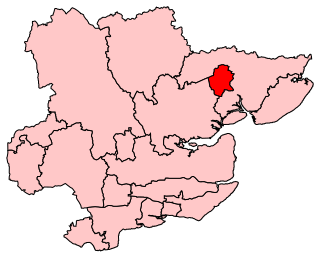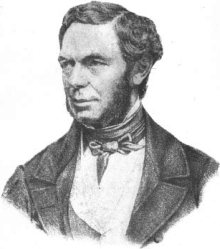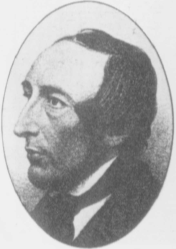This article needs additional citations for verification .(March 2018) (Learn how and when to remove this template message) |
The Tipperary by-election of February 1875 took place on 16 February 1875. The by-election, to one of two seats in the House of Commons constituency of Tipperary, arose due to the resignation of the incumbent MP, Charles William White of the Home Rule League.

The House of Commons is the lower house of the Parliament of the United Kingdom. Like the upper house, the House of Lords, it meets in the Palace of Westminster. Officially, the full name of the house is the Honourable the Commons of the United Kingdom of Great Britain and Northern Ireland in Parliament assembled. Owing to shortage of space, its office accommodation extends into Portcullis House.
Tipperary, also known as Tipperary County, was a parliamentary constituency in Ireland, which from 1801 to 1885 returned two Members of Parliament (MPs) to the House of Commons of the United Kingdom.
Charles William White was an Irish Member of Parliament (MP) in the House of Commons of the United Kingdom of Great Britain and Ireland.
Immediately on news of White's resignation, there was speculation that John Mitchel, the Fenian campaigner, would be a candidate. Mitchel had been convicted of treason in 1848 on the basis of writings which were considered seditious, and sentenced to transportation for 14 years. Sent to Bermuda, he had escaped in 1853 to the United States. On 3 February, he announced that he would sail for Ireland, and issued an election address to the electors of Tipperary, saying he was in favour of Home Rule, total overthrow of the established Church, free education, universal tenant rights, and the freeing of Fenian prisoners. This met with a mixed reception; the Irishman newspaper announced that 'By electing John Mitchel, Tipperary will prove to our rulers that Ireland is neither dead nor dying.' The Daily Express on the other hand insisted that as he was a felon who had broken his parole, his election would be regarded as 'a defiance to England and an incentive to disaffection'. [1]

John Mitchel was an Irish nationalist activist, author, and political journalist. Born in Camnish, near Dungiven, County Londonderry and reared in Newry, he became a leading member of both Young Ireland and the Irish Confederation. He was transported to Van Diemens Land but later escaped to the United States in the 1850s, he became a pro-slavery editorial voice. Mitchel supported the Confederate States of America during the American Civil War, and two of his sons died fighting for the Confederate cause. He was elected to the House of Commons of the United Kingdom in 1875 but was disqualified because he was a convicted felon. His Jail Journal is one of Irish nationalism's most famous texts.

Fenian was an umbrella term for the Fenian Brotherhood and Irish Republican Brotherhood (IRB), fraternal organisations dedicated to the establishment of an independent Irish Republic in the 19th and early 20th centuries.

Penal transportation or transportation was the relocation of convicted criminals, or other persons regarded as undesirable, to a distant place, often a colony for a specified term; later, specifically established penal colonies became their destination. While the prisoners may have been released once the sentence was served, they generally did not have the resources to get themselves back home.
Mitchel's candidacy raised mixed feelings on the Nationalist side. It was reported that the Nation, a pro-Home Rule paper, which Mitchel had written for years before, while accepting that he would be elected, was uneasy with his radicalism. [2] It was clear that Mitchel's election was likely and that it would very probably be uncontested - another Fenian, Jeremiah O'Donovan Rossa, had been elected for the constituency in a by-election in 1869, only for his election to be invalidated as he was a felon. Charles Kickham, the prominent Fenian writer, told the voters that it was unlikely the British government would render Mitchel's election void, but rather would seek support for a candidate of their own, hoping to get the Roman Catholic clergy to advise against electing Mitchel. [3]

The Nation was an Irish nationalist weekly newspaper, published in the 19th century. The Nation was printed first at 12 Trinity Street, Dublin from 15 October 1842 until 6 January 1844. The paper was afterwards published at 4 D'Olier Street from 13 July 1844, to 28 July 1848, when the issue for the following day was seized and the paper suppressed. It was published again in Middle Abbey Street on its revival in September 1849.
Felony disenfranchisement is the exclusion from voting of people otherwise eligible to vote due to conviction of a criminal offense, usually restricted to the more serious class of crimes: felonies. Jurisdictions vary as to whether they make such disfranchisement permanent, or restore suffrage after a person has served a sentence, or completed parole or probation. Felony disenfranchisement is one among the collateral consequences of criminal conviction and the loss of rights due to conviction for criminal offense.
On 16 February 1875, no other nominations having been received, John Mitchel was declared elected, unopposed, as Member of Parliament for Tipperary. [4] The next day, the House of Commons directed that a new writ be issued, as Mitchel was disqualified as an undischarged felon. [5]






